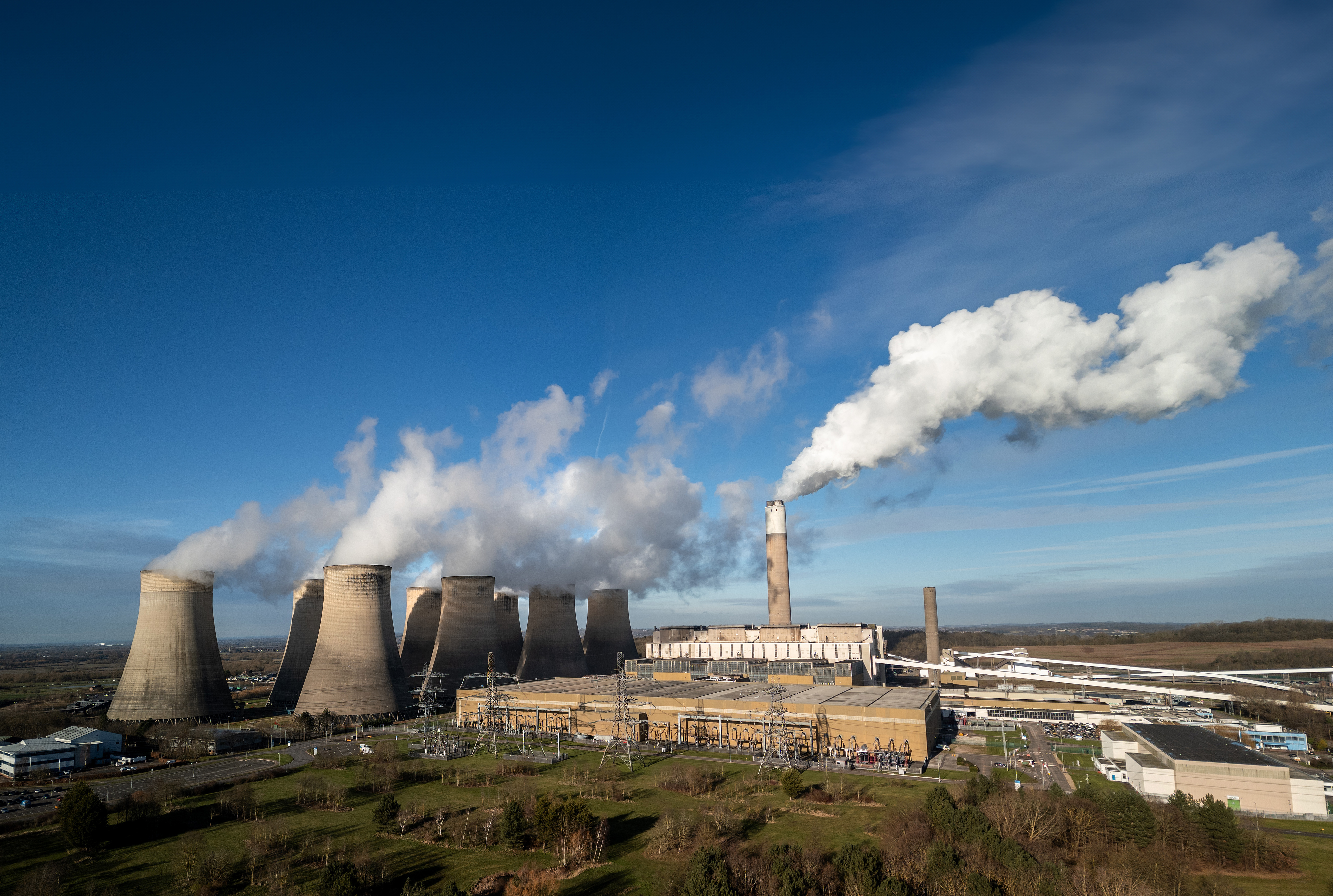Last British coal power plant shuts down

A view of Ratcliffe-on-Soar Power Station when it was still generating coal power. UNIPER/Handout
Nov. 24 (ZFJ) — The United Kingdom’s last coal power plant shut down on Sept. 30, ending over 140 years of coal energy in the nation and making it the first major economy to completely phase out coal power.
The Ratcliffe-on-Soar Power Station, owned by Uniper, is located near Nottingham. It began generating power in 1967 and officially ended generation at midnight on Sept. 30.
Coal was responsible for 40% of the U.K.’s electricity supply in 2012. It presently makes up 0% of the energy supply.
According to Uniper, the power plant has generated enough energy to make over 21 trillion cups of tea over its lifetime. Its capacity of 2 gigawatts can power over two million homes (about the whole of the East Midlands).
In 1882, the U.K. became the first country to generate coal power. Now, 142 years later, it has become the first G7 country to end it.
“As we close this chapter, we honor Ratcliffe’s legacy and the people working here, while embracing the future of cleaner and flexible energy,” said Uniper CEO Michael Lewis. “In this context, Uniper aims to invest in technologies like CCS, renewables and hydrogen. The goal is to decarbonise our remaining power assets and to deliver low carbon fuel as well as green and reliable energy to our customers.”
The gradual closure process for Ratcliffe began in 2015 when the British government announced its intention to end coal power generation over the next decade.
In January 2024, all four of the plant’s 500 megawatt units ran together for the last time. In June 2024, the final 1,650 ton shipment of coal from the Port of Immingham was delivered by train.
The plant’s 170 employees are now either retiring (with many having spent their entire careers at the plant), seeking other positions within Uniper, or leaving the company altogether.
“It is an emotional day for me as well as for the team,” said Plant Manager Peter O’Grady. “When I started my career 36 years ago, none of us imagined a future without coal generation in our lifetimes. I am incredibly proud of what we’ve achieved together over the years and to be part of this energy milestone as the country focuses on a cleaner energy future.”
Decommissioning for the main coal-fired units, starting in October 2024, first entails removing hazards such as bulk stored oils, chemicals, gases, byproducts, and wastes.
Decommissioning is expected to take about two years before the site is handed over to a demolition contractor.
References
- Uniper - The end of an era - Ratcliffe-on-Soar power station ends coal generation - https://www.uniper.energy/news/the-end-of-an-era---ratcliffe-on-soar-power-station-ends-coal-generation (ARCHIVE)
- United Kingdom Department for Energy Security and Net Zero - @energygovuk (X) - https://x.com/energygovuk/status/1841029056944312543 After 142 years of helping power our country, the coal power station at Ratcliffe-on-Soar has closed & the UK becomes the first major economy to phase out coal power.
